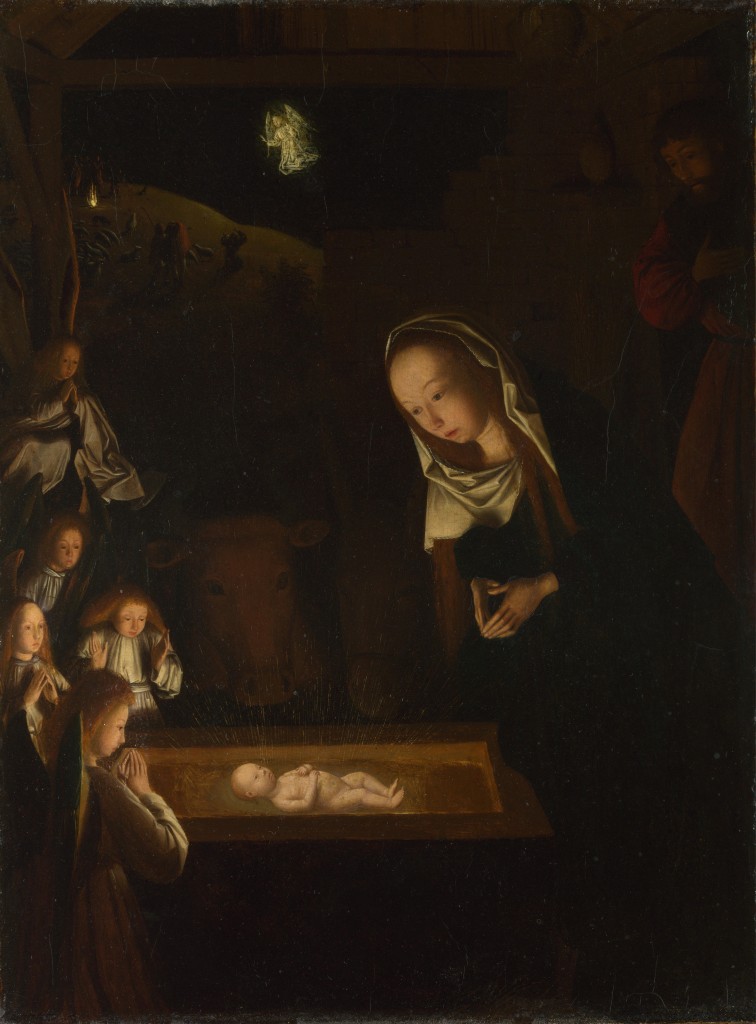
The infant Jesus we encounter in scripture is a serious and inspiring source of interpretation and celebration. I am not a Biblical scholar, but I am aware of the litany of approaches to the interpretation of scripture, from those that rely primarily on tradition and past authority to those that take a more modern historical approach. I reject none of these out of hand, but I am of course limited to what I know. The text I am using is the New Jerusalem Bible and I will mainly work from it as closely as I am able to.
Some have claimed that the Christ child we adore during the season of Christmas, from Nativity to Epiphany, is a Middle Eastern refugee and that this geopolitical identity should inspire the United States, and the global North in general, in our treatment of Middle Eastern refugees. Others have countered that this is (1) an improper characterization because it politicizes Christmas and religion and (2) is an incorrect reading of scripture.
In what follows, I hope to present replies to these two objections.
***
Reply to 1: The Incarnation matters because “the Word became flesh, he lived among us, and we saw his glory.” What this means is that “God so loved the world” (my emphasis). The amor mundi of God, God’s love of the world, is not itself worldly, but it is for the world. What this means is that we cannot make a false division between heaven and earth. We see concretely this in the presence of politics throughout the Gospels.
Rome looms heavy in the New Testament. Luke directly mentions Caesar Augustus and Quirinius, the governor of Syria, in his infancy narrative. Matthew tells us the story of Herod in his. So the idea that politics are somehow foreign to our understanding of Jesus in scripture is at odds with scripture itself.
It seems worthwhile to think that if the insights of scripture are Divine, then they share the Divine disposition of amor mundi — the Gospel is for the world and there is no good reason to exclude it from the worldly realm of politics.
***
Reply to 2: We rely on two different infancy narratives for the Christian Christmas story. There is not a single narrative. When we add historical insights we find many reasons to take these narratives seriously in a literal, historical sense, but we also find many reasons to be attentive to the mythic qualities of these stories. The census described by Luke, but not by Matthew, more likely dates to the 6 CE and the literal date of December 25 is more likely to occur in the present month of April. Nonetheless, we find enough overlap in the two narratives of Luke and Matthew, at a historical and mythic level of truth, repeat in other texts as well (the Quran, for example, which places the birth of Jesus in Egypt), to support a vast and beautiful imaginary of theological and religious insight and devotion. For instance, notice the ways Jesus is related to the typologies of the Old Testament, to Moses and, of course, to David.
In the two narratives we see Joseph and a pregnant Mary leave to Bethlehem. Luke tells us this is because of a decreed registry across the Roman Empire. This means that, in Luke, the Holy Family was a Jewish family traveling in Roman occupied Judea, to fulfill a registration mandate that would identify them religiously within Joseph’s Davidic line. Whether they ended up in a cave or a barn, there was nothing apolitical about their trip. Jesus was born in Bethlehem because of political displacement. Add to that, in Matthew, the dream where Joseph was told to flee to Egypt, because of a local Roman emperor’s political wrath — indeed, Herod saw Jesus as a manifestly political threat — and now the refugee status seems unobjectionable.
Those who would act as if there is an easy narrative of Christ’s birth that easily falsifies seeing him and his holy family as refugees, make an elementary mistake of reducing scripture — and salvation history — to a simplistic picture book. These religious illiterates also forget that Christmas is a season that includes the entire infancy narrative, everything from the census to Bethlehem, to the flight into Egypt. When we take this into account we see that the objection to Christ the Middle Eastern refugee is not only weakly argued in terms of Biblical interpretation, it is also a secular understanding of the season of Christmas.
These two replies should sufficiently refute the idea that the seeing Jesus as a Middle Eastern refugee is false. However, there is perhaps more truth to this that I have yet to allude to.
***
The incarnational wit of Christianity is most present in two places: Bethlehem and Calvary. The swaddling clothes prefigure the cloth that wrapped Christ in the tomb. (The cave as a birthplace is preferable to me for the same reason.) Myrrh is an embalming oil. The point seems to be that God so loved the world that he chose to become human and showed his humanity if the two most graphic moments of weakness: birth and death, womb to tomb.
The lesson here is not reducible to politics, but it does provide a political message about the preferential option for the poor. The incarnation of Christ is most of all poor. He is a refugee and a criminal, an outcast and a religious minority, he breaks the law to uphold the Law, he tells stories and confuses people, he grows angry in the Temple but shows mercy in the street.
The definitions of what a refugee is and is not are not useful here. What matters is that Christ is not a mere philanthropist or community organizer. He is not an altruist. He is not powerful in the temporal sense yet his weakness is our eternal strength. We do not adore a richly decorated Christ child or King — it is the Kings who adore him. We adore an infant in a manger and a young man on a Cross. A baby in a feeding trough and Jewish dissident being brutally tortured to death. This is our incarnate God and therein we find our salvation.
Anyone who settles for less than this, no matter their ideology or exegesis, is lost, false, and the poorest of all.
















